Facebook
Youtube
Instagram
The specific charism of our Institute requires all its members to work in supreme docility to the Holy Spirit and according to the example of the Virgin Mary, so that Jesus Christ will be the Lord of all that is truly human, even in the most difficult situations and under the most adverse conditions.
This charism is the grace to know how to work concretely so as to extend the presence of Christ in families, education, the mass media, the scholarly, and in all other legitimate manifestations of human life. It is the gift of making each person “like a new Incarnation of the Word” (Blessed Elizabeth of the Trinity), thus fulfilling our essential call to be missionaries and Marian.
IVE Constitutions 31.
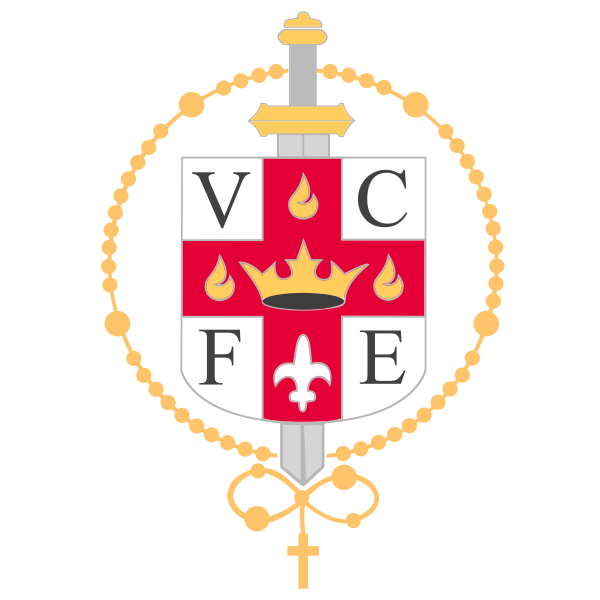
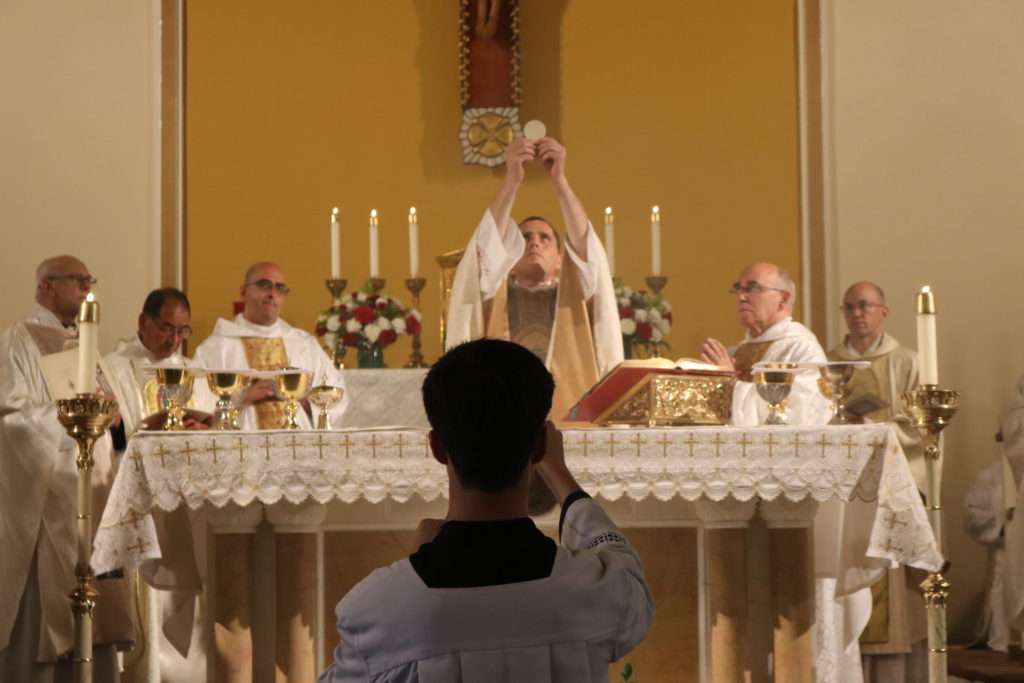
This focus on the Incarnation means that, for him, all that is authentically human is open to the Gospel. Just as the Word, in assuming a human nature, united to Himself all that was authentically human, so the IVE priest must also work in such a way that no apostolate is foreign to him.
An IVE priest seeking to “follow Christ more closely under the action of the Holy Spirit,” must consecrate himself totally through the profession of the evangelical counsels of poverty, chastity, and obedience. In this way he will accomplish the full offering of himself as a sacrifice acceptable to God by which his entire existence becomes continuous worship to Him in charity.”
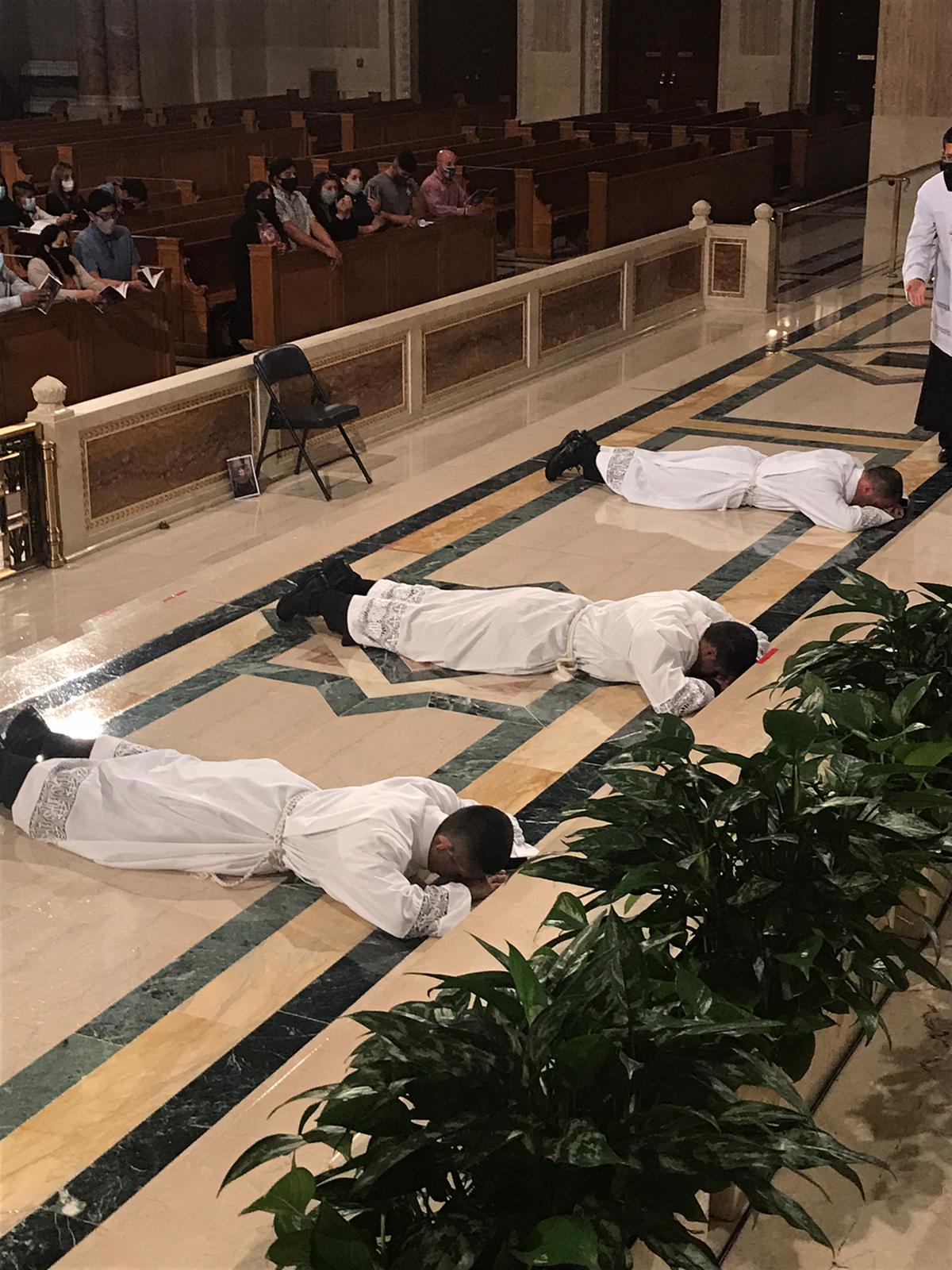
He does not, however, make this sacrifice alone. The profession of vows is made in union with others. “This consecration is manifested by forming a Religious Family, professing vows publicly, and living a fraternal life in common. The public testimony we must give includes detachment from the world. To live according to the Holy Spirit, we must separate ourselves from the spirit of the world: … the Spirit of truth, whom the world cannot receive, because it neither sees him nor knows him (Jn 14:17). (Constitutions, 23-25)
In order to live out this consecration better, he also makes “a fourth vow – consecration to Mary.
This consecration is a total surrender to Mary so as to better serve Jesus Christ, and has two aspects: “filial slavery of love” according to Saint Louis-Marie Grignion de Montfort’s commendable method. (Constitutions, 82-88).
From this mystery, we want to undertake “to reestablish all things in Christ” (Eph 1:10), seeking to be as another Incarnation of the Word in order to make Him incarnate in all that is human. We are aware that, as St. Irenaeus teaches, “that which is not assumed is not redeemed”. Thus, nothing that is authentically human is foreign to us, because the life of grace that Jesus Christ came to bring to the world must be brought to everything and everyone.
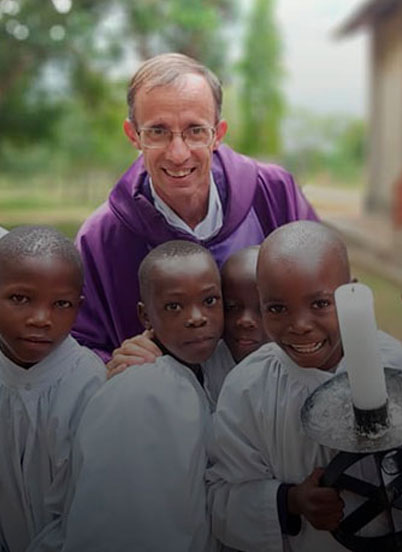
In light of Jesus’ true humanity, the IVE priest must seek to practice the virtues of humility, poverty, suffering, obedience, self-surrender, mercy and charity to all men. In a word, he too, must take up his cross. This attitude must move him, in a particular way, to live his vows of poverty and obedience within the scope of Christ’s Redemption and Christ’s redeeming love; that is to say, within the scope of the Christ’s self-denial in His redemptive Incarnation.
An IVE priest must be characterized by the importance he gives to the celebration of the Holy Mass; in particular, by celebrating it with great reverence. His devotion to the Holy Mass should manifest the Institute’s marked devotion to the Holy Eucharist. For an IVE priest, “the Eucharist must be one of his great loves, since “it is the sign of a God who wants to remain among men and who gives Himself up to man totally: “In the Sacrament, the logic of the Incarnation reaches its extreme consequences.” For this reason, “participation in the Holy Sacrifice of the Mass is the most important act of [his] day. It is the main act of worship, the sacrifice of praise that gives infinite glory to God. It is in the Mass that Christ, the High and Eternal Priest, perpetuates His redeeming sacrifice on altars all over the world, in such a way that the effects of His Passion reach all men of all times.” (Constitutions, 137).
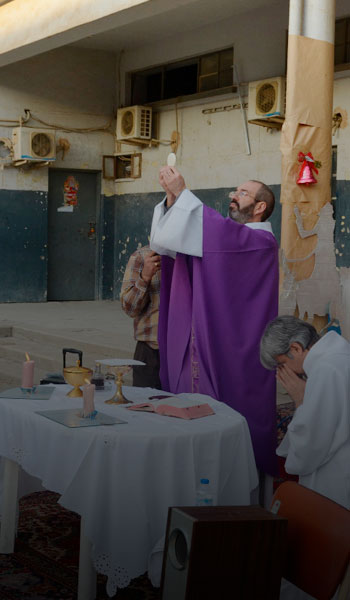
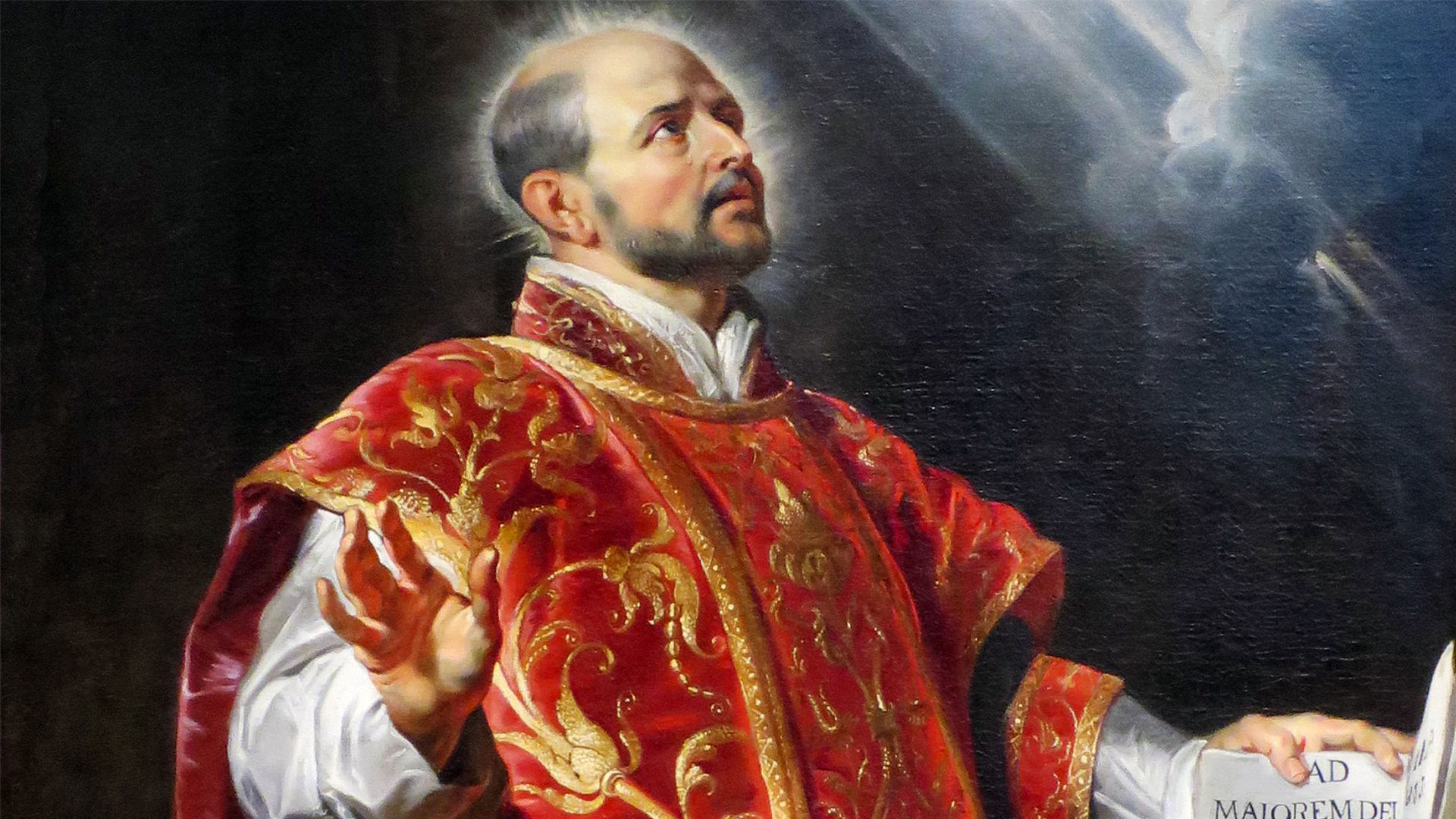
In light of Jesus’ true humanity, the IVE priest must seek to practice the virtues of humility, poverty, suffering, obedience, self-surrender, mercy and charity to all men. In a word, he too, must take up his cross. This attitude must move him, in a particular way, to live his vows of poverty and obedience within the scope of Christ’s Redemption and Christ’s redeeming love; that is to say, within the scope of the Christ’s self-denial in His redemptive Incarnation.
Secondly, his “serious spirituality” is manifested in the desire to transcend the merely sensible, such that he is disposed to pass through the “dark nights.” As the Doctor of Mystical Theology himself expressed, “To love is to labor to divest and deprive oneself for God of all that is not God” (St. John of the Cross, Ascent to Mt. Carmel, 2, 5, 7).
Why a “serious spirituality”?
Because evangelization of the culture, “demands from us a spirituality with unusual nuances.” As Pope St. John Paul II, our spiritual father, teaches, “All this demands a new approach of cultures, attitudes, [and] behaviors aimed at in-depth dialogue with cultural centers and at rendering fruitful their meeting with the message of Christ. This work also demands a faith on the part of responsible Christians that is illumined by continual reflection when confronted with the sources of the Church’s message, and a continual spiritual discernment pursued in prayer….True inculturation is from within: it consists, ultimately, of a renewal of life under the influence of grace.” On another occasion the late Holy Father also exclaimed, “for the greater glory of God and the salvation of souls, the Creator, in His admirable plan of goodness, provided the Church with a singular help by means of St. Ignatius of Loyola and the limitless promotion of the Spiritual Exercises.”
For an IVE priest “the strictest fidelity to the Supreme Magisterium of the Church of all times, the proximate norm of faith, is absolutely necessary” (Constitutions, 222). In particular, we regard the following elements as fundamental to our charism: the teachings of the Second Vatican Council’s Pastoral Constitution on the Church in the Modern World (Gaudium et Spes), the Apostolic Exhortations Evangelii Nuntiandi and Catechesi Tradendae, St. John Paul II’s speech to UNESCO and others on the same subject, the Puebla Document, the Encyclical Letter Slavorum Apostoli, the encyclical letter Redemptoris Missio, the Post-Synodal Apostolic Exhortation Pastores Dabo Vobis, n. 55, c, and any forthcoming directives, orientations and teachings of the Magisterium of the Church that may be issued regarding the specific purpose of our small Religious Family.

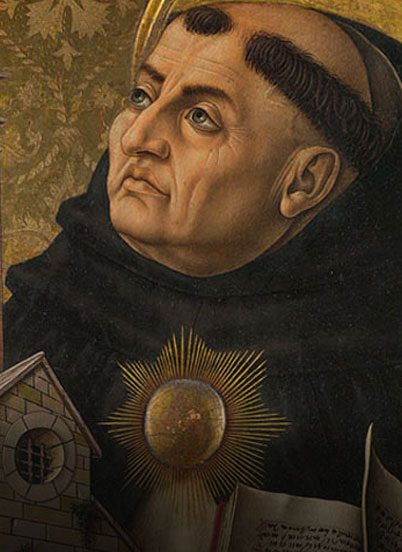
An IVE priest must give preference to the works of Saint Thomas Aquinas, be formed “under his magisterium,” and hold him “especially as a teacher” for the following reasons:
He “illumined the Church more than all the other doctors. In his books, one profits more in only one year than in the study of all the others during his whole life.”
He “most venerated the ancient doctors of the Church, [and] in a certain way he seems to have inherited the intellect of all.”
The “Church has proclaimed that the doctrine of Saint Thomas is her own.”
God has willed that by the strength and truth of the doctrine of the Angelic Doctor, “All the heresies and error that would follow will be driven away, confounded and condemned.”
His knowledge is of undeniable and fundamental importance for the right interpretation of Sacred Scripture, so as to transcend the sensory and achieve union with God, and to build the edifice of Sacred Theology upon the solid base provided by a profound knowledge of the philosophy of being – a “perennially valid philosophical heritage” – and the advances of philosophical investigation.
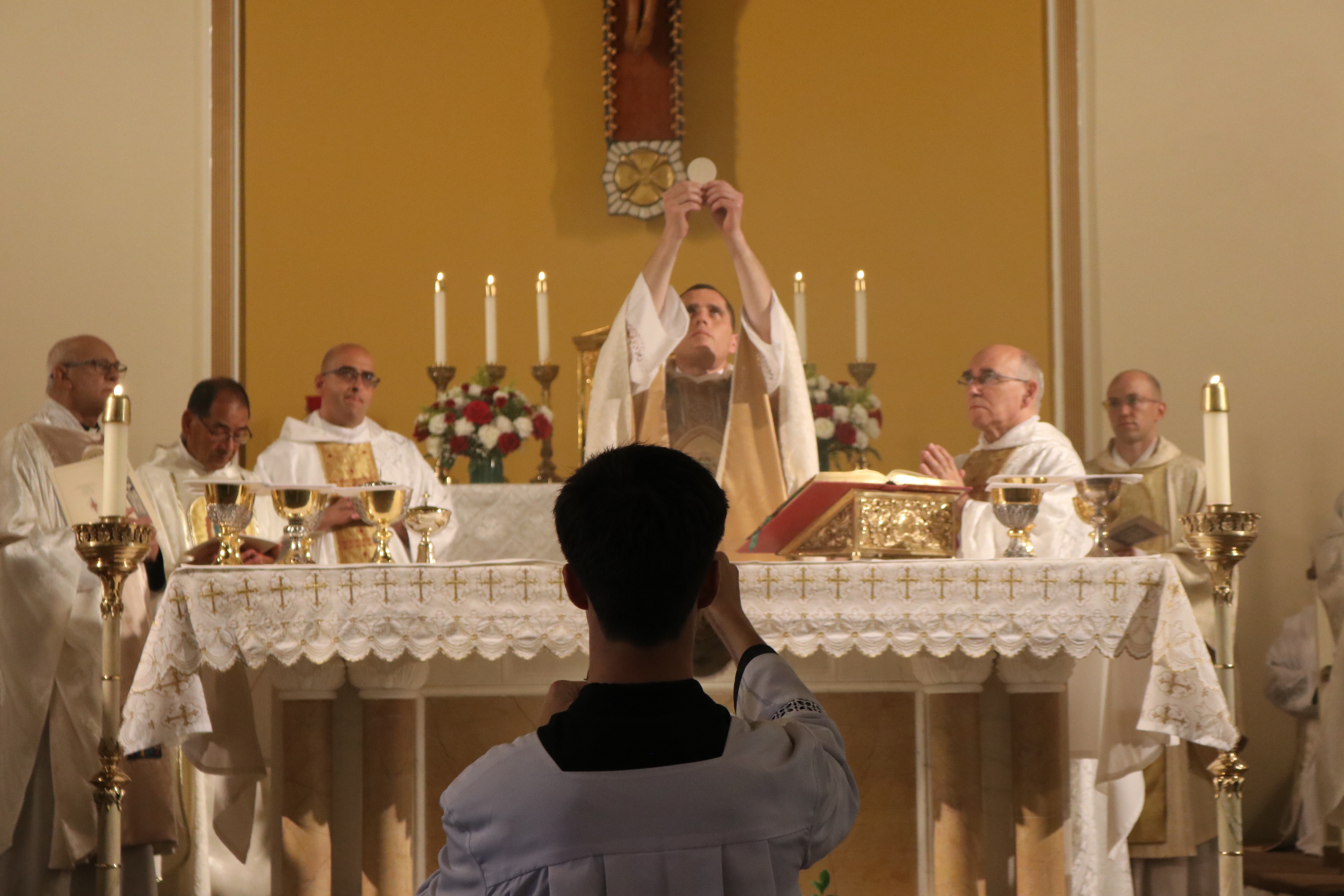
This focus on the Incarnation means that, for him, all that is authentically human is open to the Gospel. Just as the Word, in assuming a human nature, united to Himself all that was authentically human, so the IVE priest must also work in such a way that no apostolate is foreign to him.

An IVE priest seeking to “follow Christ more closely under the action of the Holy Spirit,” must consecrate himself totally through the profession of the evangelical counsels of poverty, chastity, and obedience. In this way he will accomplish the full offering of himself as a sacrifice acceptable to God by which his entire existence becomes continuous worship to Him in charity.”
He does not, however, make this sacrifice alone. The profession of vows is made in union with others. “This consecration is manifested by forming a Religious Family, professing vows publicly, and living a fraternal life in common. The public testimony we must give includes detachment from the world. To live according to the Holy Spirit, we must separate ourselves from the spirit of the world: … the Spirit of truth, whom the world cannot receive, because it neither sees him nor knows him (Jn 14:17). (Constitutions, 23-25)
In order to live out this consecration better, he also makes “a fourth vow – consecration to Mary.
This consecration is a total surrender to Mary so as to better serve Jesus Christ, and has two aspects: “filial slavery of love” according to Saint Louis-Marie Grignion de Montfort’s commendable method. (Constitutions, 82-88).
From this mystery, we want to undertake “to reestablish all things in Christ” (Eph 1:10), seeking to be as another Incarnation of the Word in order to make Him incarnate in all that is human. We are aware that, as St. Irenaeus teaches, “that which is not assumed is not redeemed”. Thus, nothing that is authentically human is foreign to us, because the life of grace that Jesus Christ came to bring to the world must be brought to everything and everyone.

In light of Jesus’ true humanity, the IVE priest must seek to practice the virtues of humility, poverty, suffering, obedience, self-surrender, mercy and charity to all men. In a word, he too, must take up his cross. This attitude must move him, in a particular way, to live his vows of poverty and obedience within the scope of Christ’s Redemption and Christ’s redeeming love; that is to say, within the scope of the Christ’s self-denial in His redemptive Incarnation.

An IVE priest must be characterized by the importance he gives to the celebration of the Holy Mass; in particular, by celebrating it with great reverence. His devotion to the Holy Mass should manifest the Institute’s marked devotion to the Holy Eucharist. For an IVE priest, “the Eucharist must be one of his great loves, since “it is the sign of a God who wants to remain among men and who gives Himself up to man totally: “In the Sacrament, the logic of the Incarnation reaches its extreme consequences.” For this reason, “participation in the Holy Sacrifice of the Mass is the most important act of [his] day. It is the main act of worship, the sacrifice of praise that gives infinite glory to God. It is in the Mass that Christ, the High and Eternal Priest, perpetuates His redeeming sacrifice on altars all over the world, in such a way that the effects of His Passion reach all men of all times.” (Constitutions, 137).
In light of Jesus’ true humanity, the IVE priest must seek to practice the virtues of humility, poverty, suffering, obedience, self-surrender, mercy and charity to all men. In a word, he too, must take up his cross. This attitude must move him, in a particular way, to live his vows of poverty and obedience within the scope of Christ’s Redemption and Christ’s redeeming love; that is to say, within the scope of the Christ’s self-denial in His redemptive Incarnation.
Secondly, his “serious spirituality” is manifested in the desire to transcend the merely sensible, such that he is disposed to pass through the “dark nights.” As the Doctor of Mystical Theology himself expressed, “To love is to labor to divest and deprive oneself for God of all that is not God” (St. John of the Cross, Ascent to Mt. Carmel, 2, 5, 7).
Why a “serious spirituality”?
Because evangelization of the culture, “demands from us a spirituality with unusual nuances.” As Pope St. John Paul II, our spiritual father, teaches, “All this demands a new approach of cultures, attitudes, [and] behaviors aimed at in-depth dialogue with cultural centers and at rendering fruitful their meeting with the message of Christ. This work also demands a faith on the part of responsible Christians that is illumined by continual reflection when confronted with the sources of the Church’s message, and a continual spiritual discernment pursued in prayer….True inculturation is from within: it consists, ultimately, of a renewal of life under the influence of grace.” On another occasion the late Holy Father also exclaimed, “for the greater glory of God and the salvation of souls, the Creator, in His admirable plan of goodness, provided the Church with a singular help by means of St. Ignatius of Loyola and the limitless promotion of the Spiritual Exercises.”
For an IVE priest “the strictest fidelity to the Supreme Magisterium of the Church of all times, the proximate norm of faith, is absolutely necessary” (Constitutions, 222). In particular, we regard the following elements as fundamental to our charism: the teachings of the Second Vatican Council’s Pastoral Constitution on the Church in the Modern World (Gaudium et Spes), the Apostolic Exhortations Evangelii Nuntiandi and Catechesi Tradendae, St. John Paul II’s speech to UNESCO and others on the same subject, the Puebla Document, the Encyclical Letter Slavorum Apostoli, the encyclical letter Redemptoris Missio, the Post-Synodal Apostolic Exhortation Pastores Dabo Vobis, n. 55, c, and any forthcoming directives, orientations and teachings of the Magisterium of the Church that may be issued regarding the specific purpose of our small Religious Family.
An IVE priest must give preference to the works of Saint Thomas Aquinas, be formed “under his magisterium,” and hold him “especially as a teacher” for the following reasons:
He “illumined the Church more than all the other doctors. In his books, one profits more in only one year than in the study of all the others during his whole life.”
He “most venerated the ancient doctors of the Church, [and] in a certain way he seems to have inherited the intellect of all.”
The “Church has proclaimed that the doctrine of Saint Thomas is her own.”
God has willed that by the strength and truth of the doctrine of the Angelic Doctor, “All the heresies and error that would follow will be driven away, confounded and condemned.”
His knowledge is of undeniable and fundamental importance for the right interpretation of Sacred Scripture, so as to transcend the sensory and achieve union with God, and to build the edifice of Sacred Theology upon the solid base provided by a profound knowledge of the philosophy of being – a “perennially valid philosophical heritage” – and the advances of philosophical investigation.
This is a non-official website | Religious Family of the Incarnate Word
Share your prayer request with religious and friends of the IVE here. You can see other prayer requests by subscribing to Resound http://iveamerica.org/#prayerrequest